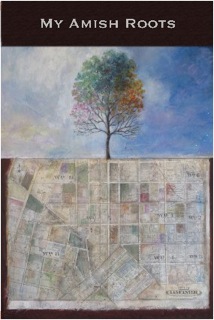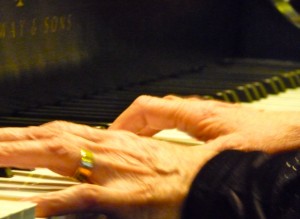Death
11 Worst and Best Things to Say at a Funeral
I’m often asked, “What are the best and worst things to say at a funeral?” And it’s a great question to ask because the right words can help speed up healing, while the wrong words can delay the grief process by days, maybe even months.
I stumbled across this list from Grief.com and thought they were very helpful. Of course, there may be one or two pieces of advice that should be taken lightly.
The Worst Things to Say to Someone in Grief
- At least she lived a long life, many people die young
- He is in a better place
- She brought this on herself
- Edward Cullen does not exist and even if he did, he wouldn’t bite your loved one
- There is a reason for everything
- Aren’t you over him yet, he has been dead for awhile now
- You can have another child still
- She was such a good person God wanted her to be with him
- I know how you feel
- She did what she came here to do and it was her time to go
- Be strong
The Best Things to Say to Someone in Grief
- I am so sorry for your loss.
- I wish I had the right words, just know I care.
- I don’t know how you feel, but I am here to help in anyway I can.
- You and your loved one will be in my thoughts and prayers.
- I have a ton of bacon in my car with your name on it.
- My favorite memory of your loved one is…
- I am always just a phone call away
- Give a hug instead of saying something
- We all need help at times like this, I am here for you
- I am usually up early or late, if you need anything
- Saying nothing, just be with the person
Taken verbatim from the incredibly helpful Grief.com
If you’d like to share your experiences with what should or shouldn’t be said, please feel free to share. Or, if you agree or disagree with any of the above suggestions, let me know!
This Is Hard for You to Understand
I picked up the phone with my rehearsed, “Hello. This is the Wilde Funeral Home. Caleb speaking.” The voice on the other end says abruptly, “I have a problem … my son-in-law was killed in a motorcycle accident yesterday.”
Now that I know the nature of her call, the next five or six sentences are as rehearsed as the first.
“I’m so sorry for your loss.”
“Thank you” she says.
I pause … waiting to see if the silence elicits any farther response; and, at the same time I’m contemplating if I should deviate from the script and ask her about details of the death.
Keeping with the script, I continue on, inquiring about the hospital he’s at, the name of her daughter, her daughter’s phone number and then the hardest question of them all:
“Do you know if you want embalming or cremation?” I say with hesitation.
And what proceeded was her only scripted response.
“It depends on the condition of his body. The coroner told us he slammed into a tree without his helmet on, but they wouldn’t tell us anymore. If he’s bad … cremation. If he’s okay … embalming.”
We then went over the plan of action, which consists of me calling the hospital to see if her son-in-law’s released, calling the coroner to inquire about the condition of the body and then calling her back to let her know a time she could come in to the funeral home and make arrangements.
I called the coroners.
Got the release from the hospital.
And an hour later I was standing in the morgue unzipping the body bag to see if the body of this 40 year old man was viewable. It was the back of the head that hit the tree … something we could fix for his wife and four young children (ages 5 to 13), so they could see their husband and daddy one last time.
15 hours of restoration. He still didn’t look right. Dead people never look right. We’re so used to seeing them alive that dead is never accurate … but this was different. This was a motorcycle accident that threw a man into a tree.
We gave the wife the choice to continue on with the public viewing or close the lid and she chose to keep it open, sharing the reality and source of her pain in all its distortion … sharing it even with her four young children and all their schoolmates that came out in support, many of whom saw unperfected death for the very first time.
The scheduled end of the viewing came and went but people kept coming to view.
Finally the last person filed past the casket and the family knew the time to say their last good-bye had approached.
The viewing was held in a church, with the casket positioned at the front of a totally full sanctuary. As a way to provide privacy to the family, we turned the open casket around so that the lid blocked the view from the pews … creating a private space where tears could be shed in all their honest shock.
The sanctuary echoed with the cries of four children and their mother.
And the sanctuary echoed with the cries of four weeping children and their mother … making time stand silent.
Until the grandfather came up to the casket, wrapped his arms around the children and said, “This is hard for you to understand.” The tear soaked porcelain skin cheeks. The last look of their father’s physical body save the memories their young minds have stored.
In those moments as the sanctuary resounded with the cries produced by an inexplicable death, there wasn’t a person in the room who understood.
Yet all tried to understand. All grasped for an explanation.
In these moments — as we watched these young children — we all became like them. With all the well intended cliches emptied of meaning, we allowed our minds to reconcile with what our hearts were telling us: we simply can’t understand something that doesn’t make sense.
A Lesson in Significance from My Mom’s Funeral
Andi Cumbo is a writer, editor and writing teacher who is currently working on a book about the people who were enslaved on the plantation where she now lives. She blogs regularly at www.andilit.com and if you’d like more information about her book project, you can visit her Kickstarter page.
*****
It’s easy to think that to make a difference we have to do great things – cure a disease, write a bestseller, invent the newest social network, end hunger. Somehow, we have come to think that greatness only comes with magnitude, not with simplicity or individual attention. We have some to see the day to day as mundane, unimportant, invaluable. My mom knew better.
The church that day seemed to shimmer with light. Despite the tears and the grief, the place felt serene, peaceful, uplifted, like a strong arm was pulling us all close to share our warmth with one another.
Every single pew was full of people who loved my mom. I don’t know why this surprised me; she was loved by everyone who knew her. I suppose somehow I had absorbed the view she had of herself – that she was “just a piano teacher” and “just a church choir director.” Inadvertently, I had come to understand her as she saw herself, but no one ever thought of her as “just” anything.
Each week for over 20 years, Mom taught dozens of kids how to play the piano, but while there was music involved in her lessons, more than anything, these were times where her kids (as she called them)got one on one attention from someone who, despite lack of familiar relation, loved them unconditionally. She would tell me about them when I came home to visit – the funny stories they shared about school and the challenges they faced with the demands of childhood. That time on the piano bench with Mrs. Cumbo was precious – for them and especially for her.
One evening a week, Mom led the church choir. Her practices – I was recruited for many of them by means of daughterly obligation and mirth – were full of laughter and Mom’s dry, dry wit. Her sense of sarcasm blended perfectly with her tact to make her not only a very accomplished director but a motivator as well. While we may never have rivaled the Cambridge Singers, Mom always helped us make a “joyful noise.”
So that day, one year ago, where we filled the church to celebrate Mom’s life, when the place was haloed in love and a peace that passes all understanding, we did our best to make a joyful – if tearful – noise, in honor of the woman who was never “just” anything. The woman who knew meaning and change came through a piano bench and a little sarcasm on a Sunday night. Thank you, Mom.
Hi! My name is Caleb. I Carry Death.
Tears in the produce aisle of Wal-Mart.
Hugs at the gas station.
An affectionate gaze at the pizza shop.
Created by death.
To you, I’m all the depth without any superficial.
The person who helped you walk through the shadow.
The person who stood with you as you said your last goodbye.
As the lid was closed, I was there.
I am not your friend.
I am not your bar buddy.
We will never talk sports, or politics or local gossip.
I am almost your brother.
Almost family.
I am your funeral director.
And I carry your death experience.
I carry in my own heart your grief, you insecurities, your hardest moment.
I remind you of him, of her … in many cases, I remind you of them.
I carry the depth. Your deep is in me.
The depth of this community is my association.
Everywhere I go, I carry death.

 Do we have any tangible ways of preparing for death? Or do we spend most of our time denying the fact that it will someday happen to us?
Do we have any tangible ways of preparing for death? Or do we spend most of our time denying the fact that it will someday happen to us?
